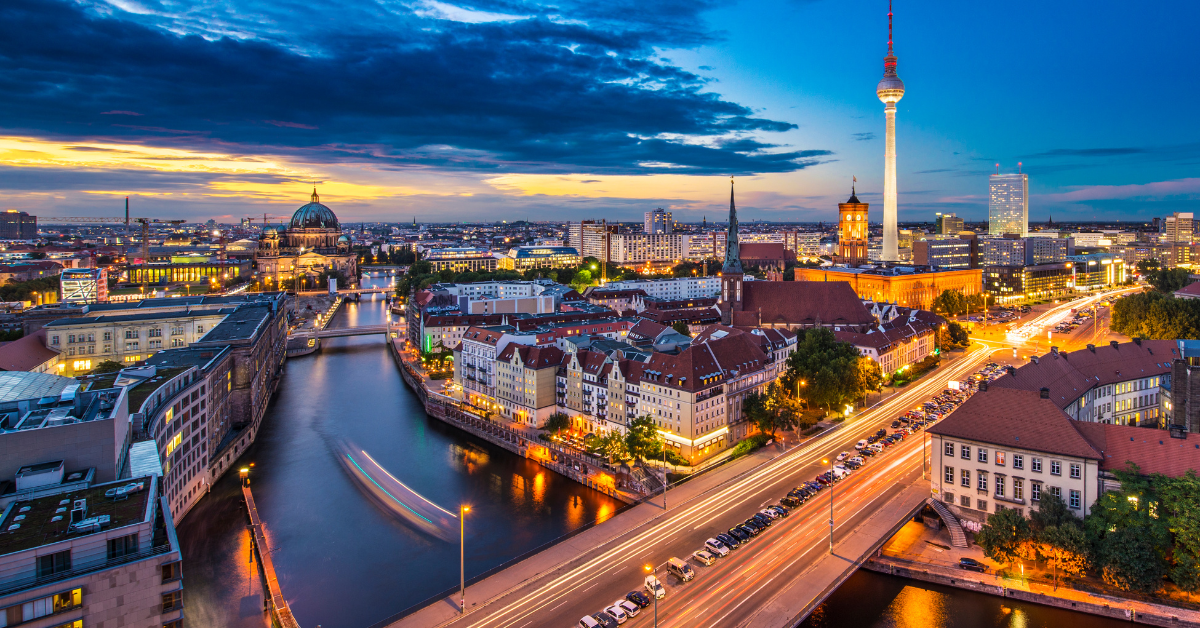The German capital, Berlin, is written in kanji as “伯林.” This notation is more than a simple phonetic transcription—it represents a unique adaptation that reflects the meaning of the characters. For the Japanese, Berlin is a stage of history, a hub of culture, and a global sports city. This article explores the background of the “伯林” notation and the diverse images Berlin evokes among the Japanese.
- The Origin of the Kanji Notation “伯林”
- Comparison with Kanji Notations of Other Foreign Cities
- Academic and Cultural Ties Between Japan and Berlin
- Berlin as a City of Arts and Culture
- Berlin as a City of History
- Berlin as an Embodiment of Freedom and Diversity
- Berlin as a City of Sports
- The Modern Japanese Image of Berlin
- Conclusion
The Origin of the Kanji Notation “伯林”
The origin of “伯林” goes beyond mere phonetic transcription.
- 伯 means “respected elder” or “noble person,” giving the city dignity and authority.
- 林 evokes “forest” or “nature,” linking to the theory that Berlin’s name derives from “swamp” or “woodland.”
Thus, the notation “伯林” is an example of Japanese ingenuity that combines both sound and meaning.
Comparison with Kanji Notations of Other Foreign Cities
Other foreign cities also have kanji notations that carry symbolic meaning.
| City | Kanji Notation | Implied Meaning |
|---|---|---|
| Berlin | 伯林 | Dignity and nature |
| London | 倫敦 | Emphasis on community |
| Paris | 巴里 | 巴 symbolizes rivers and curves |
| Washington | 華盛頓 | Splendid and prosperous place |
These are not simple translations but culturally nuanced adaptations designed to fit into the Japanese language.
Academic and Cultural Ties Between Japan and Berlin
Since the Meiji era, many Japanese students studied law and medicine at the University of Berlin and brought this knowledge back to Japan. In the arts as well, exchanges flourished, with Japanese artists often active in Berlin.
After World War II, Berlin became a symbol of the Cold War, and landmarks such as the Berlin Wall and Brandenburg Gate were repeatedly covered in Japanese media. For the Japanese, Berlin symbolizes both “scholarship and history.”
Berlin as a City of Arts and Culture
Berlin is highly regarded as a global center of culture. The Berlin Philharmonic Orchestra, in particular, enjoys immense prestige worldwide and is deeply admired in Japan.
In addition, contemporary art, film festivals, and architecture make Berlin a compelling destination, drawing many Japanese tourists seeking its cultural richness.
Berlin as a City of History
Berlin is home to numerous historical monuments and landmarks.
| Location | Historical Significance | Japanese Impression |
|---|---|---|
| Brandenburg Gate | Symbol of German unification | Symbol of freedom and independence |
| Berlin Wall Remains | Symbol of the Cold War | A place to reflect on division and unity |
| Holocaust Memorial | Memory of war | A site for peace awareness |
For Japanese visitors, these sites serve as “living classrooms of history” that allow them to directly experience the city’s past.
Berlin as an Embodiment of Freedom and Diversity
Post-Cold War Berlin has become a hub of cultural fusion and a city known for respecting diversity. Youth subcultures and immigrant cultures have taken root, reinforcing the impression of Berlin as a “free and creative city.”
Berlin as a City of Sports
Berlin is also famous as a global sports stage.
| Sports Event | Features | Connection with Japan |
|---|---|---|
| 1936 Berlin Olympics | A historic event | Japanese swimmers won medals |
| Olympiastadion Berlin | Home of Germany’s national team | Venue for international football matches |
| Berlin Marathon | One of the world’s greatest races | Japanese runners participate regularly |
Thus, Berlin is recognized as a “city of sports and international exchange” in the eyes of the Japanese.
The Modern Japanese Image of Berlin
Today, Japanese people hold a multi-layered perception of Berlin.
| Perspective | Specific Impression |
|---|---|
| Culture | City of arts and music |
| History | Symbol of Cold War and unification |
| Society | City of freedom and diversity |
| Sports | Stage for international competitions |
For the Japanese, Berlin is not just a political capital but a “multifaceted city with layered appeal.”
Conclusion
The kanji notation “伯林” is a phonetic transcription that also conveys dignity and nature. For the Japanese, Berlin is a city of scholarship, a cultural hub, a historic stage, and a sporting arena that connects with the international community. By combining these four aspects—culture, history, freedom, and sports—Berlin continues to hold a special place in the Japanese imagination.






